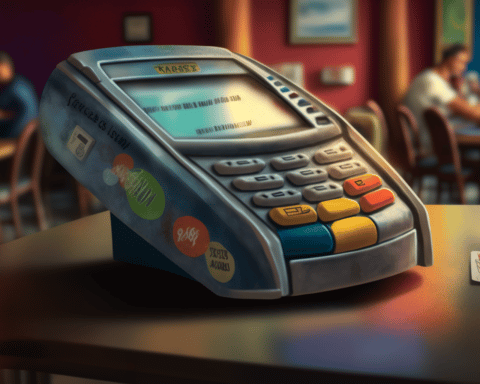Online gaming and sports betting have witnessed a tremendous surge in value, accumulating over $80 billion in wagers in 2022. This figure is approximately 440% more than the $14.8 billion the entire Las Vegas strip generated last year. Consequently, online betting has outperformed Las Vegas in terms of revenue.
With an $80 billion valuation, online betting platforms and virtual gaming casinos have become prime targets for cybercriminals. While no elaborate heists have occurred on the scale of the Ocean’s Eleven films, online gambling companies have already experienced multiple data breaches and malware attacks.
In 2021, for example, several hackers infiltrated Chinese gambling companies and embedded malicious links within the platform, appearing legitimate and secure. However, once clicked, these links unleashed malware on the user’s computer, capable of stealing private information.
Cybercriminals devise sophisticated traps to compromise sensitive information as online gamers often link their credit cards and bank accounts to their gaming profiles. To safeguard your data, opting for secure payment methods and removing risky ones is crucial.
What Is the Safest Payment Method for Online Gaming?
Virtual credit cards and reloadable debit cards are the most secure online betting and gaming payment methods.
Virtual credit cards are issued by credit card companies and connected to a credit card account, but they don’t share the exact account details, such as card number, expiration date, or CVV/CVC code. Most virtual cards can only be used for single purchases and become inactive after usage. This method is arguably the safest way to gamble online, as it prevents hackers from acquiring credit card numbers.
While not all credit card issuers offer virtual cards (Chase doesn’t, but Capital One and Citibank do), they provide an essential alternative. Another safe option is a reloadable debit card, a prepaid card. These cards hold money that you load manually and are not connected to a bank account, which makes them safer than traditional debit cards. However, if compromised, the attacker could only access the funds loaded on the card. They may also incur fees, making them less cost-effective than virtual credit cards.
Some Payment Methods to Avoid Include:
- Bank accounts. Never directly link your bank account to a gambling platform. This puts your funds at risk, as a compromised account could allow cybercriminals to withdraw money.
- Debit cards. Like bank accounts, debit cards grant cybercriminals direct access to your account.
While using credit cards is not recommended, mainly if you can generate a virtual card, they are preferable to bank accounts, debit cards, and wire transfers. Credit cards come with fraud protection, and you typically won’t be held liable for fraudulent charges. Exercise caution when using your card: monitor your transactions frequently and report any unrecognized charges.
What Can You Do to Protect Yourself Against Cyberattacks?
While preventing hackers from targeting gambling platforms may be impossible, you can shield yourself from their traps. Here are some ways to ensure safe online gaming:
- Avoid public Wi-Fi when gaming. Private Wi-Fi connections are more secure.
- Create robust passwords and update them regularly.
- Set credit card alerts for purchases if you must use a credit card. This way, you’ll be notified immediately when the card is used, allowing you to stop fraudsters from causing havoc on your credit line.
- Update software regularly. Gambling companies strive to protect your information, but outdated software can leave you vulnerable to attacks.
- Lastly, refrain from sharing sensitive information online. Even if the other party seems familiar, they could pose as someone else. Never accept “wire transfers” from fellow gamers; keep your data confidential.
To further enhance your safety while online gaming, consider adopting the following additional precautions:
- Use two-factor authentication (2FA). Enable 2FA on your gaming accounts and any associated email accounts to add an extra layer of security. This way, even if your password is compromised, an attacker still needs access to the second authentication method, such as a text message or authentication app code.
- Install a reliable antivirus and anti-malware program. Ensure you have up-to-date antivirus and anti-malware software installed on your devices to detect and block potential threats.
- Be cautious with links and downloads. Avoid clicking on suspicious links or downloading files from unknown sources. These actions can inadvertently introduce malware to your device.
- Stay informed about scams and security issues. Keep yourself updated on the latest scams, phishing tactics, and security issues related to online gaming. Being informed will help you recognize potential threats and make better decisions about your online safety.
- Use a reputable virtual private network (VPN). A VPN can add an extra layer of security by encrypting your internet connection and masking your IP address. This makes it more difficult for hackers to intercept your data or track your online activities.
- Opt for reputable gaming platforms. Choose trustworthy gaming platforms with a history of good security practices and customer support. Check for user reviews and recommendations before signing up for a new platform.
- Be mindful of the information you share in gaming communities. Avoid sharing sensitive personal information in online gaming communities or forums, such as your full name, address, or phone number. Cybercriminals can use this information for identity theft or other malicious purposes.
Implementing these safety measures will significantly reduce the likelihood of falling victim to cyberattacks while engaging in online gaming. Stay vigilant, exercise caution, and enjoy a secure gaming experience.




